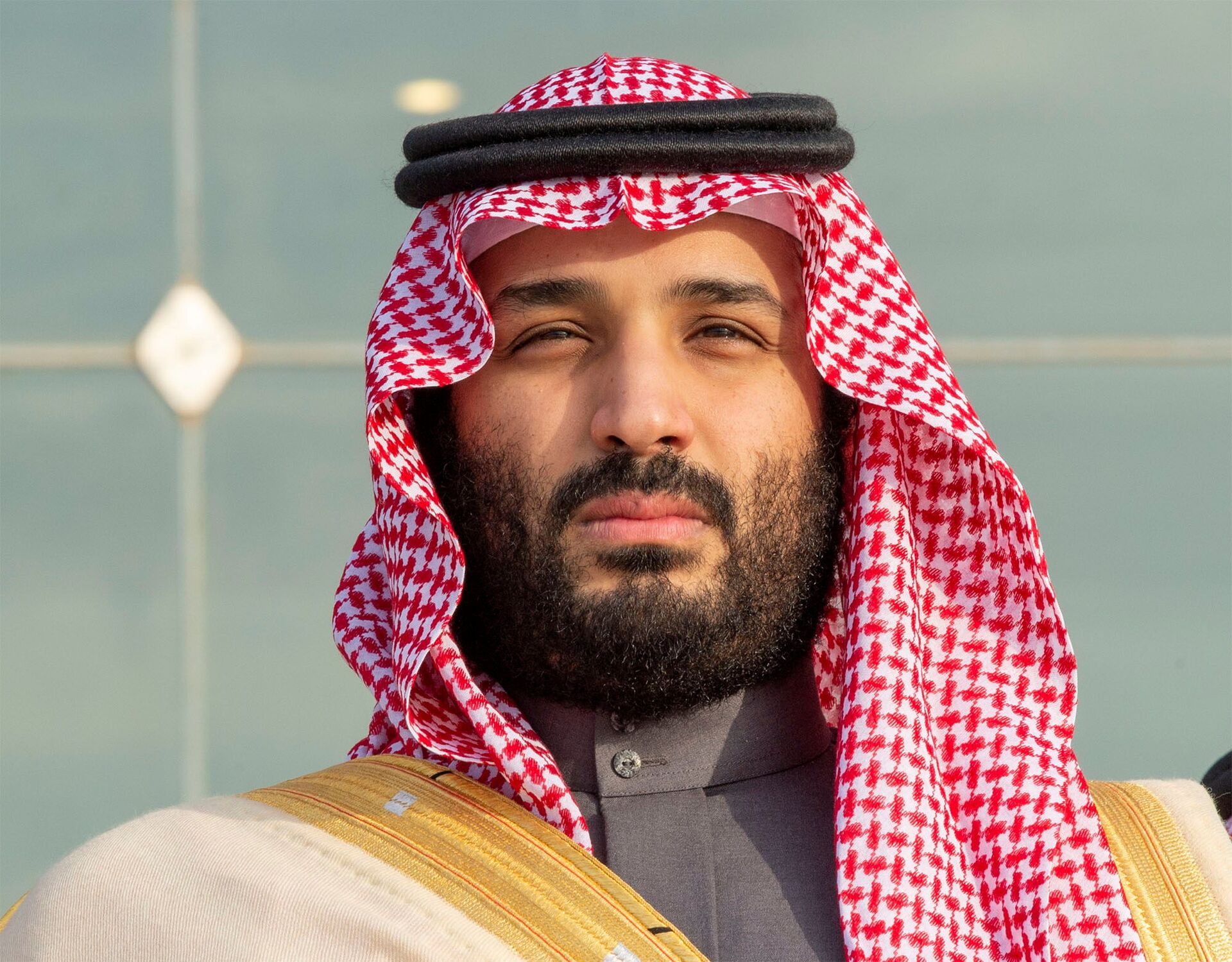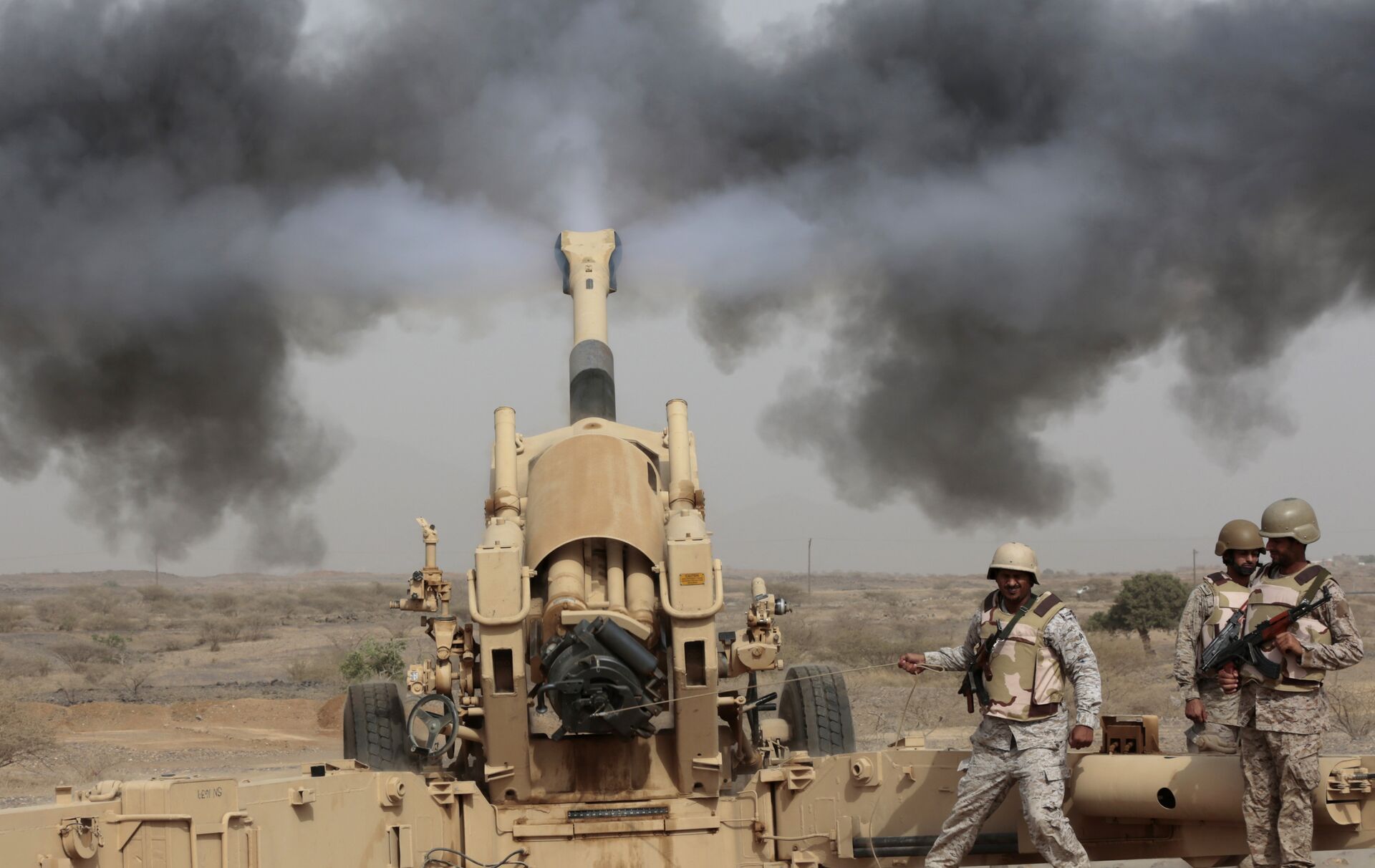Saudi Arabia Appears to Be Fed Up With America's Foreign Policy - Here's Why

© AP Photo / Hasan Jamali
Subscribe
Reports suggest that Crown Prince Mohammed bin Salman has already invited Chinese President Xi Jinping to his country. The two are expected to discuss Beijing possibly purchasing Saudi crude in yuan, instead of dollars.
The United States continues to look for solutions to stabilise the oil market after prices on crude reached new heights following a decision to ban all energy imports from Russia.
Last week, British Prime Minister Boris Johnson visited Saudi Arabia and the United Arab Emirates in a bid to press them to speed up oil production. But his pleas fell on deaf ears. So did earlier demands by US President Joe Biden.
Experts are now warning that Saudi Arabia, which has been an American ally for decades, is drifting away from Washington. What has prompted Riyadh to make such a decision? Here are the top three reasons that have contributed to the change in policy.
Pride and Dignity
When Joe Biden assumed office in January 2021, he made sure to call all America's allies. First, he spoke with the leaders of Canada, the UK, and Mexico. Then with Asian leaders. Saudi Arabia was nowhere on the list.
Even when Biden did remember Riyadh, a month after his inauguration, the phone call he placed was not to the country's Crown Prince Mohammed bin Salman (MBS), who serves as the de facto ruler of the kingdom. The American president preferred to speak to his father, King Salman. Sputnik has previously reported that the decision to ignore the 36-year-old was not taken lightly by him, and a Riyadh-based analyst suggested that MBS was waiting for the right moment to get his revenge.
Farewell to Arms?
In the 1970s, the US struck a deal with Saudi Arabia under which Washington would arm Riyadh in exchange for a promise to trade its oil in dollars, a move that has elevated the US dollar to the world's reserve currency.
Since then, the US has been providing the kingdom with various types of advanced technologies. Washington has also been helping the Gulf nation to train its personnel, to repair and maintain the country's equipment. It has made Riyadh fully dependent on American arms.

Saudi Arabia's Crown Prince Mohammed bin Salman attends a graduation ceremony for the 95th batch of cadets from the King Faisal Air Academy in Riyadh, Saudi Arabia December 23, 2018.
© REUTERS / HANDOUT
Yet, with time the White House started to drift away from earlier agreements. Partially, this was due to the US decision to leave the Middle East and focus on advancing American interests in Asia. And partially because of Saudi Arabia's alleged human rights violations and specifically the 2018 murder of Saudi journalist Jamal Khashoggi, whose death has been attributed to MBS, allegations that the kingdom has repeatedly denied.
When Biden took over the Oval Office, he continued that policy, which began under Barack Obama, and has indicated that he would re-examine Washington's arms sales to the kingdom. Riyadh didn't take that decision lightly.
Reliable Partner?
In 2011, the Saudis saw America's precocious nature for the first time, when Washington ditched one of Riyadh's regional allies, Egypt's then President Hosni Mubarak and embraced the Muslim Brotherhood, a movement deemed a terrorist grouping by a number of nations.
Several years later, in 2015, relations between the two states were put to the test again when Washington signed the Joint Comprehensive Plan of Action with Iran. That agreement sent chills through Riyadh as it enabled Tehran to advance its nuclear programme under strict Western supervision and authorities in the kingdom were worried the deal would result in the Islamic Republic acquiring nuclear weapons, something that the Saudis have been concerned about.
Under President Donald Trump the US unilaterally pulled out of the nuclear agreement with Iran, and the Saudis breathed a sigh of relief but when Biden took over the negotiations around the deal resumed, and recent reports suggest that another deal will be reached in a matter of days.

In this Monday, April 20, 2015, file photo, Saudi soldiers fire artillery toward three armed vehicles approaching the Saudi border with Yemen in Jazan, Saudi Arabia.
© AP Photo / Hasan Jamali
The Saudis have already indicated that this deal is a red line for the kingdom. If the agreement is signed, Tehran will see its assets unfrozen by the US and its allies. Trade with the Islamic Republic would be resumed, and Riyadh is worried that the Iranians will use that money to arm its Revolutionary Guard Corps and its allies across the Middle East, including Yemen's Houthi rebels.
Those rebels have long been a headache for the Saudis. Since 2015, when Riyadh started its intervention in Yemen at the request of the then-president, the Houthis have been launching attacks on the kingdom and its regional ally, the United Arab Emirates. They have been attacking their oil fields, vessels, and strategic sites. Washington preferred to overlook it, and removed the rebels from the list of terror organisations.
Enough is Enough?
Now, as the White House contemplates doing the same with the Revolutionary Guard, the Saudis are indicating that they have had enough.
MBS has even invited Chinese President Xi Jinping to visit the oil-rich nation. Reports also suggest that Saudi Arabia is now considering selling its oil to China using the Chinese yuan as the prevailing currency. Although a deal is far from being final, the mere fact that such an option is being considered, might be an indication to the White House that its dominance in the Gulf is nearing an end.
Let's stay in touch no matter what! Follow our Telegram channel to get all the latest news: https://t.me/sputniknewsus


